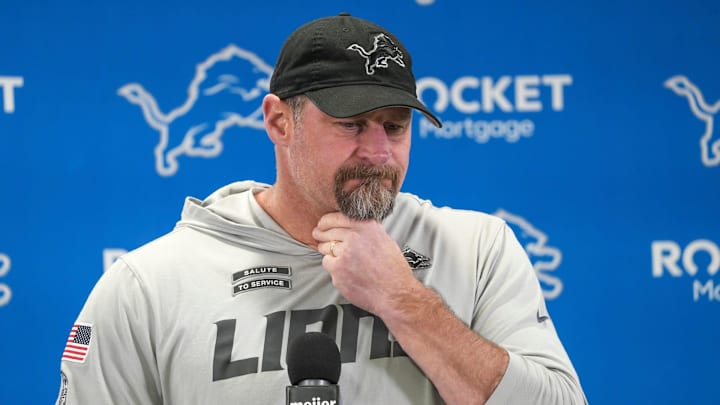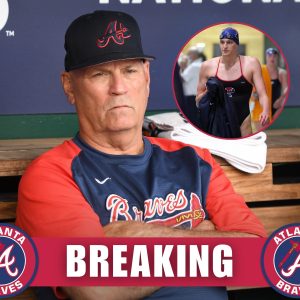Why the Detroit Lions Are Watching Super Bowl 59 from Home
A Season That Was Meant for Greatness
The Detroit Lions were supposed to be playing in Super Bowl 59. After a dominant 15-2 regular season, everything seemed to be lining up for a historic run under Dan Campbell. General manager Brad Holmes built a roster designed to compete at the highest level, and the team’s performance throughout the year only reinforced that belief.
Yet, when the dust settled, the Lions were eliminated, left to watch the biggest game of the year from home. What went wrong? How did a team with so much promise fall short? There are several key reasons why Detroit’s dream season turned into heartbreak.
Lack of Boldness at the Trade Deadline
One of the biggest missed opportunities came at the NFL trade deadline. The Lions were dealing with mounting injuries, particularly on defense, yet they remained competitive and continued winning games. That success may have given the front office a false sense of security, leading them to take a conservative approach instead of making a big move to bolster the roster.
Detroit desperately needed a pass-rusher, yet their biggest acquisition was Za’Darius Smith—an aging veteran who provided a spark but not the game-changing impact they needed. Relying on practice squad call-ups and minor additions wasn’t enough to compensate for their defensive deficiencies.
Against the Washington Commanders in the playoffs, rookie quarterback Jayden Daniels picked apart Detroit’s defense, neutralizing their pass rush by getting the ball out quickly and using his mobility. Additional depth in the secondary or another offensive weapon could have made a significant difference. Instead, the Lions played it safe, and that decision ultimately contributed to their downfall.
A Season Plagued by Injuries
The injury bug hit Detroit harder than ever before. Key defensive players like Aidan Hutchinson, Alex Anzalone, Derrick Barnes, Malcolm Rodriguez, Carlton Davis, and Amik Robertson all suffered significant injuries, forcing the Lions to rely on backups and practice squad players at critical moments.
Some of the injuries were even self-inflicted. Linebacker Jack Campbell’s aggressive playing style led to friendly-fire incidents, resulting in broken bones for both Anzalone and Robertson.
While the team attributed these injuries to “bad luck,” Detroit must take a deeper look at their medical and training staff. A revamped injury prevention strategy could be the key to keeping their stars on the field in 2025.
Jared Goff’s Play Collapsed Under Pressure
Detroit’s franchise quarterback was solid throughout the regular season, but when the pressure was at its highest, Jared Goff failed to deliver. While the offensive line struggled, Goff made crucial mistakes, throwing costly interceptions and committing turnovers that swung momentum in favor of the Commanders.
Dan Campbell acknowledged that Goff, like everyone else on the team, needs to take the next step to become a Super Bowl-winning quarterback. The message was clear: greatness requires consistency in the biggest moments, and Goff fell short when it mattered most.
Failure to Create Turnovers
The Lions’ defense thrived on forcing takeaways during the regular season, but when they needed it most, the turnovers dried up. Against Washington, Detroit lost the turnover battle 5-0—an unacceptable margin for a team with championship aspirations.
Campbell admitted that the defense “hit a drought” and simply couldn’t generate the big plays needed to swing the game in their favor. Despite efforts to punch the ball out and force mistakes, the Lions’ defense failed to create the extra possessions that could have changed the outcome.
Coaching Distractions and Noise
Throughout the season, Lions coordinators Aaron Glenn and Ben Johnson were in high demand for head coaching jobs. While it’s understandable that talented coaches attract interest, the noise surrounding their futures may have been an unnecessary distraction.
Was the game plan against Washington truly the best version of what the Lions could have executed? Did external opportunities take even a fraction of their focus away from the team’s ultimate goal?
The Commanders, despite entering the game as underdogs, handled the moment better. Detroit, a franchise still searching for its first Super Bowl appearance, needed complete organizational unity. Instead, distractions may have played a role in their early exit.
What Comes Next for the Lions?
The 2024 season was a step forward, but it ended in disappointment. If Detroit wants to take the next step and reach the Super Bowl in 2025, they must learn from these mistakes.
- Be more aggressive at the trade deadline when a championship is within reach.
- Invest in injury prevention to keep key players on the field.
- Expect more from Jared Goff in high-pressure situations.
- Build a defense that can create turnovers in critical moments.
- Minimize distractions and maintain an all-in mindset from the entire coaching staff.
The Lions have the talent, leadership, and foundation to be Super Bowl contenders again. The question is, will they make the necessary adjustments to finally reach the big game?








